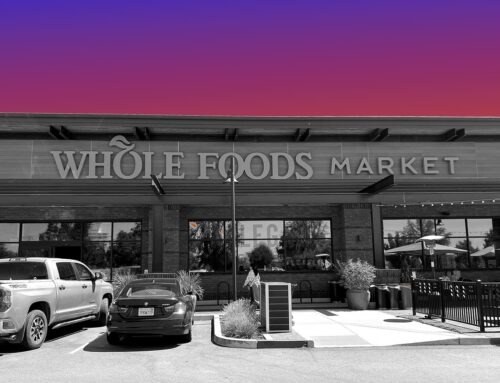Why is Nebraska mulling changes to voter-approved medical cannabis laws? It’s complicated
May 12, 2025
LINCOLN, Neb. (Nebraska Examiner) – The most common question many Nebraskans have asked of state lawmakers considering legislative regulations for new medical cannabis laws is, “Why?”
At a series of public forums this month in La Vista, Omaha and Lincoln, some supporters of medical cannabis asked why state senators were even entertaining Legislative Bill 677 a half-year after Nebraskans approved legalizing and regulating medical cannabis.
Voters overwhelmingly approved two ballot measures last November. The one to legalize medical cannabis secured 71% approval. A companion regulatory measure won with 68% of the vote.
The answer to why lawmakers are considering changing those laws largely has to do with setting aside state funds for the new regulatory commission voters approved and setting up additional guardrails in the face of bureaucratic and executive branch opposition to medical cannabis, limits on how much a ballot measure can accomplish in a single vote and continued legal challenges.
Hansen has repeatedly said the way Nebraska handles medical cannabis could become the “wild west” if the Legislature doesn’t pass LB 677, largely because of the lack of funding.
“We will essentially have nothing in the State of Nebraska,” Hansen told reporters last week. “You want to talk about denying the will of the voters, turning a blind eye to a ballot initiative that actually helps some individuals in the State of Nebraska who really need help? That’s undermining the will of the voters.”
Nebraska Attorney General Mike Hilgers, who opposes medical cannabis and has supported efforts to stop the bill from being implemented, has argued that allowing the laws to take effect as-is would be better for the “will of the people,” which Hansen rejects as “false hope.”
The sponsors of the medical cannabis ballot measures in Nebraska support Hansen’s LB 677.
Funding for new regulatory commission
Among the top concerns for the new voter-created Nebraska Medical Cannabis Commission, which has sole regulatory authority over medical cannabis, is getting the regulatory process moving so physicians can recommend the medicine and patients can legally buy it in the state.
While voters passed a regulatory measure setting a July 1 deadline to set new regulations and an Oct. 1 deadline to start licensing medical dispensaries, dispersing state funds is a power reserved to the Nebraska Legislature. This means the new regulators have no funding set aside for the new commission through the end of this fiscal year, June 30.
The proposed state budget for the next two years would earmark an additional $30,000 each year for any Medical Cannabis Commission work taken on by Nebraska Liquor Control Commission employees. When voters approved creating the Medical Cannabis Commission, they assigned those additional duties to the three commissioners on the Liquor Control Commission.
But the state budget creates no new and separate line item for the Medical Cannabis Commission.
LB 677 provides a path to getting the commission more funding, though how much will be difficult in the face of a major projected budget deficit. The bill would also explicitly allow the commissions to share staff and resources.
Hilgers has argued the Medical Cannabis Commission should be drafting regulations anyway, despite a late March court filing from the commissioners that they have “no ability to carry out any duties” outlined in the new laws without funding, such as creating open meetings notices or paying staff.
As of March, that meant no meetings. No deliberations. No votes. No employees. No regulations.
Hilgers, a former speaker of the Legislature, said that the Medical Cannabis Commission could expend “incidental funds” to regulate cannabis and then request those funds be reimbursed next year. However, some senators questioned how that would be possible with no line item, or overarching agency, to do so.
The Legislature might not approve such a reimbursement, and Hilgers’ office has vowed to sue the commissioners if they begin to license medical cannabis dispensaries anyway.
Continued legal challenges
LB 677 continues to face opposition from some state senators who look to Hilgers’ ongoing and pledged legal challenges against the underlying cannabis laws as a reason for hesitancy.
However, passage of LB 677 could weaken and possibly nullify a pending appeal to the Nebraska Supreme Court, led by Hilgers and a former state senator who has long opposed marijuana.
Hilgers speculated last week that if LB 677 passed, “it makes our job a lot more difficult to what we think should be a fair fight” in front of the Nebraska Supreme Court.
His office has alleged widespread fraud in the ballot measure campaign, which organizers have denied and a Lancaster County District Court judge widely rejected in November, after voters had weighed in.
The appeal from Hilgers’ office argues that because the district court judge found at least some signatures from four notaries that should not have been counted — not enough to disqualify the petitions — as grounds for the thousands of signatures collected by those notaries to lose a “presumption of validity.” If so, the case could then move to a second phase where campaign officials could try to rehabilitate enough signatures and still reach the threshold that was needed to be on the ballot.
None of the four targeted notaries have been criminally charged, Hilgers confirmed last week.
Should any medical cannabis dispensaries be licensed, Hilgers’ office has planned to argue that the laws are preempted by the federal government, which continues to classify marijuana as a dangerous drug with no medical value. However, there have been steps under the Biden administration and now the Trump administration to reclassify the drug. Dozens of other states have implemented medical or recreational marijuana programs.
“I think two plus two is four, even if everyone else says two plus two is five,” Hilgers said last week.
LB 677 would also provide immunity to health care practitioners who recommend medical cannabis to patients. Under current law, Hilgers said, “all health licensure is at risk of revocation, except in this case, if this bill were passed.”
He didn’t directly answer a reporter’s question whether his office might investigate the licenses of all physicians who recommend medical cannabis, or if his office would do so on a case-by-case basis.
The Nebraska Medical Association, in a written comment letter for LB 677 earlier this year, voiced support for the measure’s additional protections for medical providers.
New restrictions and guardrails
Securing the votes to get LB 677 out of the General Affairs Committee has required adding on a list of qualifying conditions, which excludes post-traumatic stress disorder, and prohibiting smoking as a permissible form of using medical cannabis.
Under the original ballot measure, a patient or their caregiver only needed to get sign-off from a health care provider to use medical cannabis in any form, including smoking.
While some senators and Hilgers argue smoking has never been a form of medicinal use, Nebraskans lined up one week ago to say that when they voted in November, they did so thinking all Nebraskans with a medical need could use cannabis in whatever form best worked for them. Some said they wouldn’t have voted for the ballot measures otherwise.
LB 677 would also amend the 5-ounce limit to state that no more than 2 ounces of that amount can be dried flower or bud, which could be manufactured into edibles, tinctures, ointments or other products. It would also add sales taxes to medical cannabis and direct tax revenue to property tax relief.
Hansen has told supporters that while PTSD, for instance, was left out as a “negotiating factor” to get the bill out of committee, the bill remains a “moving target.”
State Sen. John Cavanaugh of Omaha, vice chair of the General Affairs Committee, has already filed amendments to add PTSD or to leave all conditions up to a patient and their physician.
“Medical cannabis is legal,” Cavanaugh said. “We need LB 677 to make it accessible and safe.”
Some Nebraskans have voiced concerns that leaving all regulations up to the Medical Cannabis Commission, as current law does, could lead to more restrictions than under LB 677. Part of the reason is that the governor’s two at-large appointments to the commission have opposed legislation concerning medical cannabis. One appointee opposed LB 677 at its March hearing.
Constitutional restraints
Why weren’t all guardrails considered or presented to voters in November? In part, because the Nebraska Constitution’s “single subject” requirement for ballot measures limits what could be presented to voters to begin with.
The ballot measures sought and created new state laws, rather than constitutional amendments, giving the Legislature the ability to amend the provisions with at least 33 votes, or a two-thirds majority. It was the third campaign in six years after numerous legislative bills stalled.
Some Nebraskans have also drawn connections between LB 677 and pending legislative efforts to water down voter-approved minimum wage increases and paid sick leave requirements.
Unlike those measures, medical cannabis supporters have partnered with Hansen.
Legislative strategy
However, the trade-off in going through the Legislature is the necessity of garnering at least 33 votes, which on this issue would likely require all 15 Democrats, one progressive nonpartisan and 17 Republicans in the officially nonpartisan Legislature.
The result would be stricter than at the ballot box, but supporters say it could be the best path forward for implementing the law.
Hansen and campaign officials have said LB 677 presents an “opportunity” to examine the medical cannabis programs in other states and create the best one for Nebraska.
Hansen, a Republican with a Libertarian bent, has told supporters to share their stories and photos, mostly with his Republican colleagues, to get 33 votes. He said he’s telling his colleagues to pass LB 677 and regulate medical cannabis, or the voters will end up legalizing recreational marijuana.
State Sen. Jared Storm of David City, a lead opponent to Hansen’s LB 677 who already views it as recreational, said he and others will prepare to fight the bill, if it is scheduled, to its max eight hours during first-round debate, which he said will be “very divisive” and “very tumultuous.”
Lawmakers are running out of time as they are set to adjourn June 9.
At a recent public forum, Hansen said incremental progress is showing “the world hasn’t ended” before lawmakers can return and expand LB 677.
“We’re not going to eat 100% of the apple,” Hansen said. “We get 75%, 80%, make sure the people who need it, you get it.”
How Legislative Bill 677 shapes up to Nebraska’s current medical cannabis regulatory law
Nebraska Medical Cannabis Regulation Act (the voter-approved current law), in effect since December 2024
- Allowable possession — 5 ounces of cannabis, no matter the product, with a health care practitioner’s recommendation.
- Possible penalties — Qualified patients or caregivers are immune under state or local law.
- Permitted forms of use — Any, including smoking.
- Recommending practitioner — Any licensed physician, osteopathic physician, physician assistant or nurse practitioner, in Nebraska or elsewhere, practicing in compliance with state law.
- Patient/caregiver tracking — None.
- Products tracking — None.
- Dispensaries — No limit.
- Qualifying conditions — Any, as recommended by a physician.
- Sales taxes — None.
- Additional restrictions — Existing law, such as driving under the influence or prohibitions on smoking in public indoor spaces.
- Other regulations — Determined by Nebraska Medical Cannabis Commission, the same three commissioners as the Nebraska Liquor Control Commission (all gubernatorial appointees) and up to two additional members appointed by the governor.
- Regulatory deadline — July 1, 2025.
- Licensing deadline — Oct. 1, 2025.
Legislative Bill 677 with AM 1251, pending in the Nebraska Legislature 2025
- Allowable possession — 5 ounces of cannabis, but no more than 2 ounces of which can be cannabis flower or bud, with a health care practitioner’s recommendation.
- Possible penalties — Qualified patients or registered caregivers are civilly and criminally immune, including citation, arrest or prosecution. Health care practitioners are given similar protections, including for their licensure, if discipline is “solely” because the doctor recommends cannabis or states that a patient is likely to benefit from medical cannabis.
- Permitted forms of use — Any, but not smoking.
- Recommending practitioner — A physician, osteopathic physician, physician assistant or nurse practitioner who primarily practices in Nebraska or an out-of-state practitioner who has treated the patient for at least 6 months.
- Patient/caregiver tracking — A registry system through the Nebraska Medical Cannabis Commission, including an application fee up to $45, valid for two years.
- Products tracking — “Seed-to-sale” tracking of products and use of the state’s prescription drug monitoring program, which is used for fentanyl or opioids, for example.
- Dispensaries — Up to 30 dispensaries, split 10 each per congressional district.
- Qualifying conditions — 15 conditions, created with the Nebraska Medical Association.
- Additional guidelines — Existing law, such as driving under the influence or prohibitions on smoking in public indoor spaces, plus:
- Cannabis must be grown, tested and distributed in Nebraska.
- Independent testing for contaminants (toxins, heavy metals or microbes).
- Products can’t be made to look appealing to children and they must have clear labels, childproof packaging and warnings.
- No dispensary, growing facility or manufacturer can be within 1,000 feet of a college campus, alcohol or drug treatment center, school or daycare.
- Restrictions on cannabis use in the workplace or at schools.
- Prohibits the sale of cannabis mixed with nicotine or alcohol.
- Other regulations — Determined by Nebraska Medical Cannabis Commission, the same three commissioners as the Nebraska Liquor Control Commission (all gubernatorial appointees) and up to two additional members appointed by the governor. At least one outside appointee must be a health care practitioner.
- Regulatory deadline — Oct. 1, 2025.
- Licensing deadline — March 16, 2026.
- Sales taxes — 5.5 cents per $1 purchase, plus local sales taxes. State sales taxes collected are directed to property tax relief.
Nebraska Examiner is part of States Newsroom, a nonprofit news network supported by grants and a coalition of donors as a 501c(3) public charity. Nebraska Examiner maintains editorial independence. Contact Editor Aaron Sanderford for questions: info@nebraskaexaminer.com.
Click here to subscribe to our 10/11 NOW daily digest and breaking news alerts delivered straight to your email inbox.
Copyright 2025 KOLN. All rights reserved.
Search
RECENT PRESS RELEASES
Related Post



